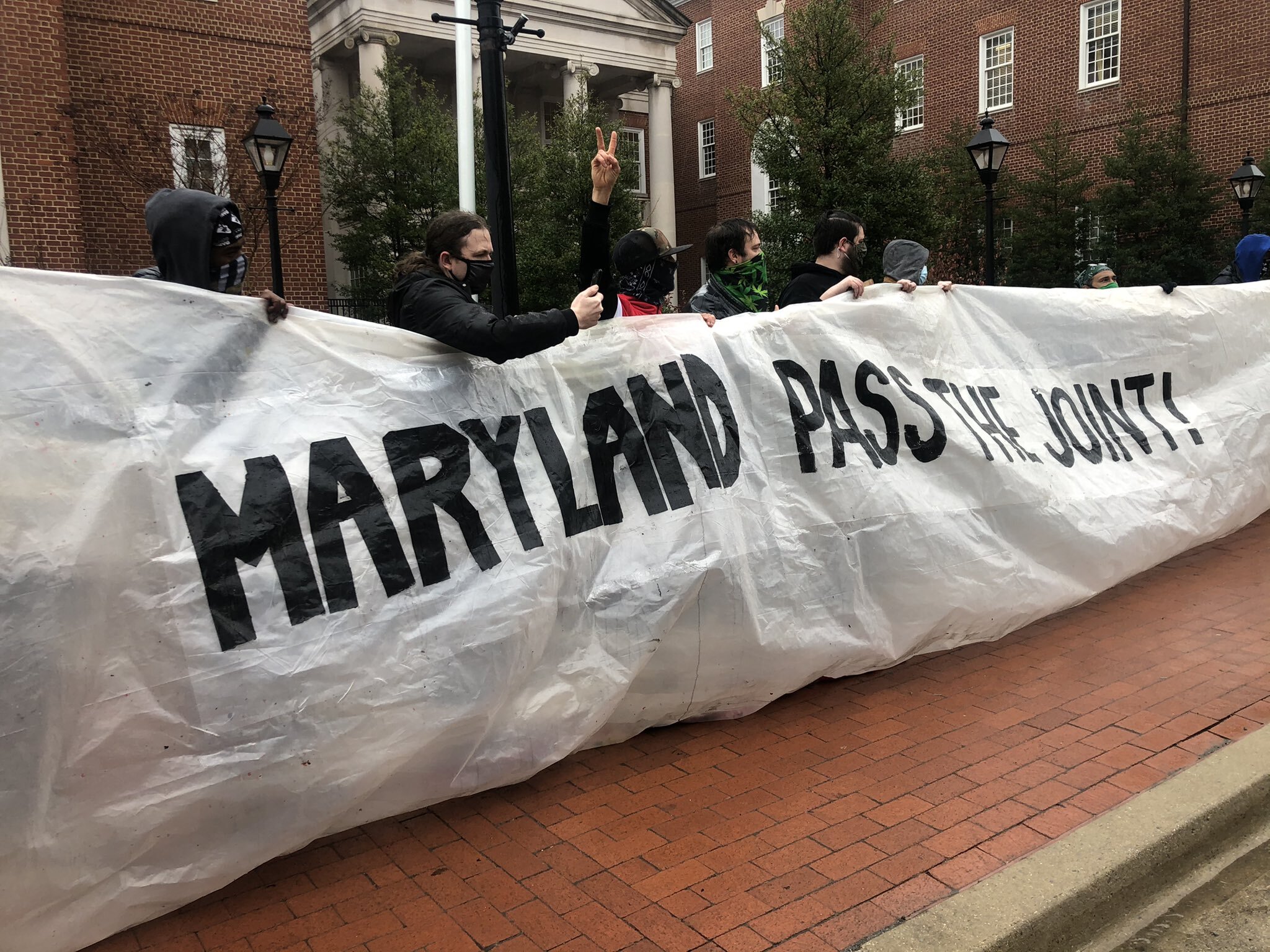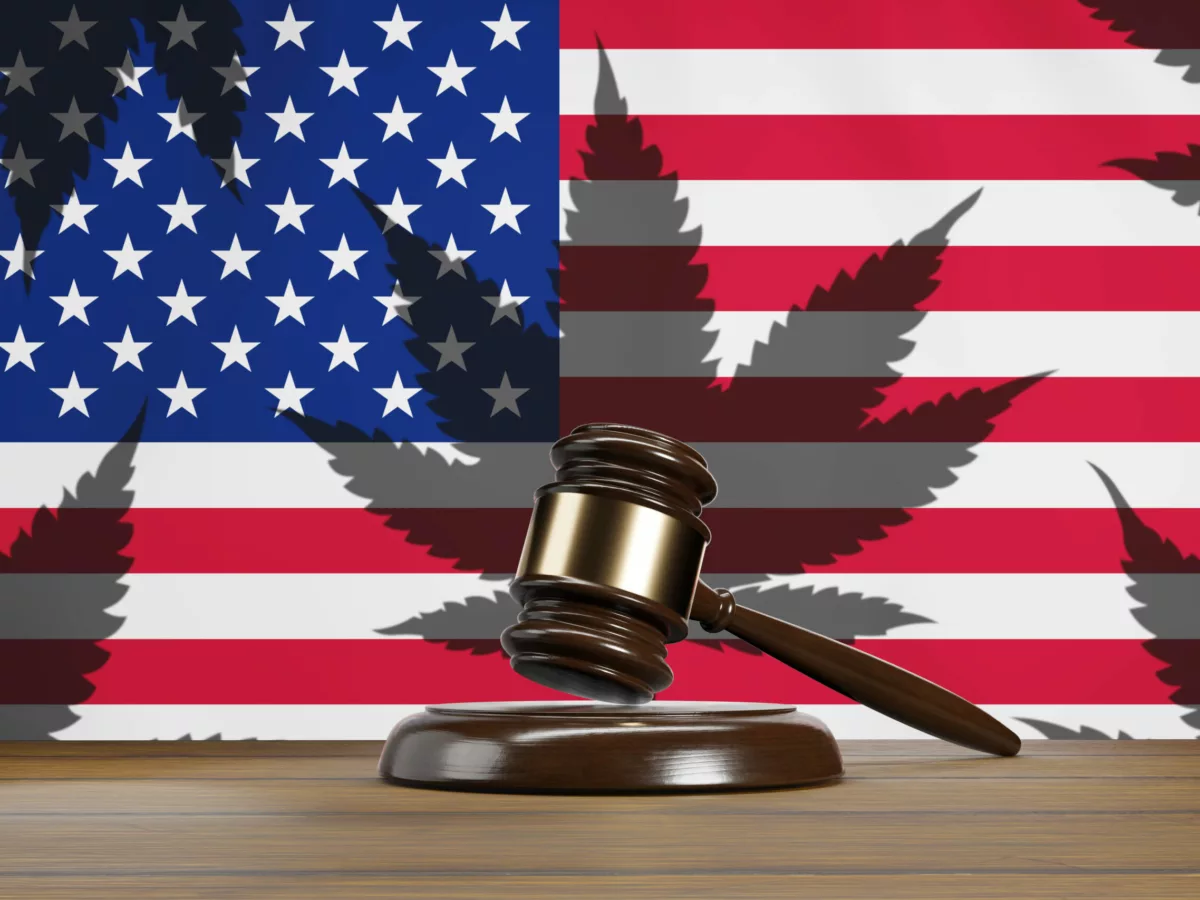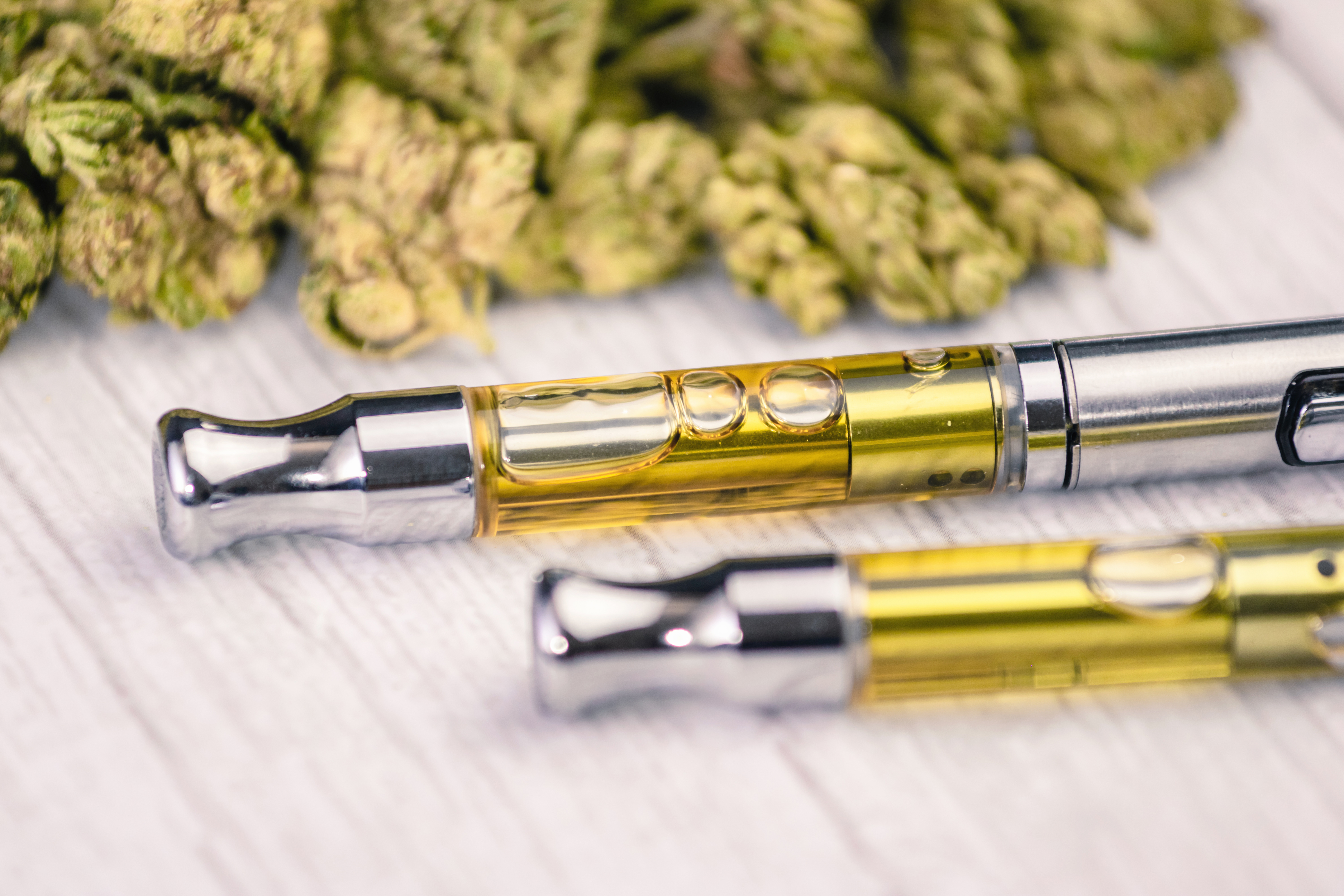A 51-foot long inflatable joint with the words “Maryland Pass The Joint!” and the logo of Maryland Marijuana Justice (MDMJ) stamped on the side of it appeared near Annapolis’ State House earlier today, Mar. 18, as part of a protest pushing the cannabis reform-averse legislators in Maryland towards passing a legalization bill.
“Some legislators won’t like seeing the big fifty one-foot joint, I guess because they like to pretend that people don’t actually use marijuana,” MD NORML’s Luke Jones said in a press release. “We’re saying—we are past that point now. Cannabis consumers are obviously here, and are obviously going to fuel the tax revenue legislators are so excited about, so we might as well call it what it is. It’s a joint—legalize it for goodness’ sake already!”
Currently there is SB 708, sponsored by Sen. Brian J. Feldman and HB 32, Del. Jazz Lewis’ bill which was pre-filed in the House before the legislative session began. As The Outlaw Report wrote a few weeks ago, “both bills include provisions that direct the majority of cannabis tax revenue towards communities who were most harshly affected by cannabis prohibition—a common goal among proponents of adult-use legalization nationwide.” Additionally, “both bills also give licensing preference to social equity applicants seeking adult-use cultivation, processing or retail licenses.” The primary difference between the two bills has to do with “the extent to which adult-use cannabis licenses are accessible to minorities and small businesses owners who were similarly shut out of Maryland’s medicinal cannabis industry.”
Maryland House Of Delegates have to send Delegate Jazz Lewis’ legalization bill SB 32 by Mar. 22, and today’s protest was characterized as “a last-ditch effort to legalize cannabis use and possession by adults before the Maryland General Assembly legislative session wraps up.”
Neither HB 32 or SB 708 is expected to pass this session. At the end of 2019, Maryland’s Marijuana Legalization Work Group did not recommend legalization during 2020’s legislative session. In 2020, a bill to increase the decriminalization threshold from 10 grams to one ounce did not pass. Meanwhile, Virginia has moved ahead of MD, decriminalizing cannabis, opening up its medicinal cannabis market, and voting to legalize all over the past year. Washington D.C. which legalized cannabis in 2014 but still has no commercial, regulated market is currently navigating two similar commercial cannabis bills.
Kris Furnish, co-founder of MDMJ moved to D.C., where cannabis is legal and homegrowing is allowed, to be able to grow their own cannabis.
“Being able to grow cannabis for myself not only allows me to save hundreds of dollars each month that I use for other essential expenses, but I love the feeling of being completely self-reliant and in control of my medicine and the process in which it’s grown,” Furnish said in a press release. “I’ve been living in D.C. now for almost a year and during that time I’ve not had to spend one dollar at a dispensary. I do not cultivate cannabis to make untaxed profits, I cultivate cannabis for my own personal use. I take pride in the fact that I don’t spray chemicals on my cannabis and that I’m using natural sunlight instead of negatively contributing to our carbon footprint.”
MD NORML’s Jones also connected cannabis legalization to racial justice. Despite white people and Black people using cannabis at about the same rate and despite cannabis decriminalization and medicinal cannabis in Maryland, Black people continue to be disproportionately arrested for weed and more broadly, cannabis arrests still number in the thousands.
“I’m not running from the police in my affluent neighborhood, but poor people are actually running from the police because of cannabis. We have more than 15,000 arrests each year for marijuana possession alone,” Jones said. “We demand freedom from fear—that’s part of the reparations. I hope people can understand that. We deserve it. We’ve been living with the pressure and stigma for too long, and we don’t want to wait another year. We don’t want to have another 15,000 potential George Floyd incidents.”
Photo by Keisha J. Reed – @thekeishahustle






